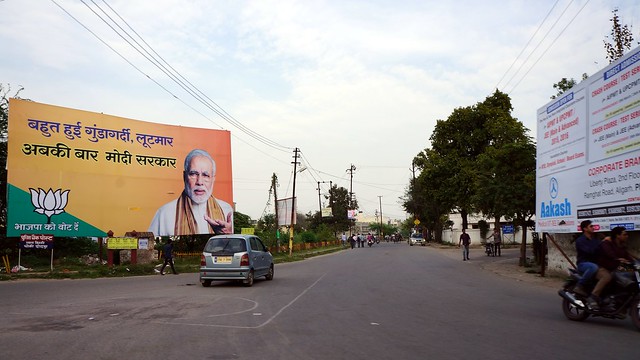By Dr Mohammad Manzoor Alam,
Thanks to India’s strong democratic tradition, even Narendra Modi came to power after a regular vote. This tradition requires that new legislators and governments are allowed a fairly long grace period before their performance is evaluated. This is why no legislator is interrupted in his or her maiden speech in assembly or the Parliament.
Now that the Modi government is six months old in power, it is open to evaluation as it has crossed the grace period. On a careful examination, its track record calls for a mixed response. In the light of BJP’s tall electoral promises its performance does not have much to write home about. However, from a general reckoning its functioning has been average.

TCN file photo
The performance on the economic front is particularly underwhelming. In a brazen attack on India’s pro-poor, socialistic, planned economy, the Prime Minister has announced to abruptly fold up the Planning Commission. What will replace it is not clear, nor do we know how it will be better than what it replaced.
Although a slow nibbling at the benefits to the poor has been going on, the major subsidies that the Right-wing party of the Prime Minister had been carping about before the polls, remain intact. In fact, despite the World Bank, IMF and international capital’s disapproval the subsidies are still there because the Prime Minister, who has reserved the PM’s chair for 10 years, can’t afford to annoy the poor. However, he will try to remove the pro-poor prgrammes slowly.
Many of the present government’s plans for the people and their details are the same as those of the UPA (with cosmetic changes in the nomenclature). The Jan Dhan Yojna, a much-touted programme of financially mainstreaming the masses, has a big contradiction at its heart. It intends to get everyone a bank account for direct benefit transfer and for distribution of loans to the hitherto unbanked. This has to be linked to the Adhar Card, which the BJP criticised and demanded its scrapping before it came to power. Now, it turns out the BJP was opposed to it merely because it was a brainchild of the UPA. In power, the BJP-led NDA supports it.
The real problem has come in the form of a warning to the banks by the Reserve Bank governor to desist from liberally distributing loans to people who may not be able to repay it. Here is a clear conflict between politics and economics, and the losers will be simple-minded folk who have built great hopes of a financial bonanza coming their way, a bonanza of larger size than what they got under UPA.
The claims to great performance on the economic front will not be true till the economy starts growing at the rate it was growing in the 2000s. More brazen-faced promises such as bringing home all the black money parked in foreign banks have turned out to be a cruel joke on the voters. Much of the effort to bring home that money was initiated by the UPA, and this government has not gone beyond that. In BJP, side shows such as Swami Ramdev used to draw in his breath (yoga style), puff his chest and declare that he would bring back all the money from abroad the day Modi government comes to power. He promised to give Rs 5 lakh to every Indian. We are still waiting for Rs 1500 to come from him, as the first installment. Ramdev is not a brazen liar. There must be some other reason for his silence.
The government has been taking pride in the lower prices of fuel. It is not because of any effort on its part. The simple fact is that the Saudis are selling oil at lower prices because America has become a great producer of energy and is scheduled to be the largest producer, leaving behind the Saudis by 2016.
The government’s Make in India programme has the potential to create a lot of jobs as opposed to IT, which creates wealth without creating jobs. However, for foreign investment to come in manufacturing we have to improve our score on Ease of Doing Business parameters. So far India has been at a miserable140th position. To make matters worse, the country has slipped to the 142nd position now. We must work to improve it without losing time.
It is time for the government to work hard and stop coining catchy slogans every other day.
—-
(Dr Mohammad Manzoor Alam Chairman Institute of Objective Studies and General Secretary of All India Milli Council.)

